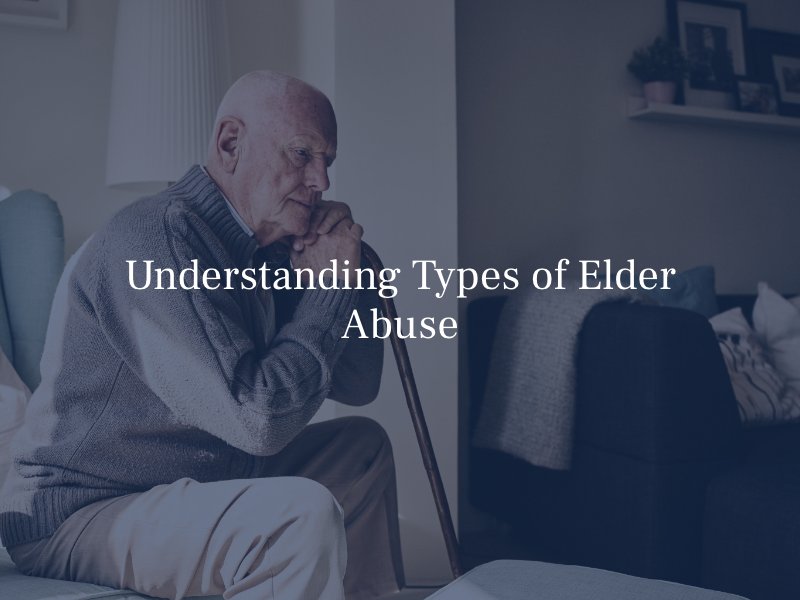
Understanding Types Of Elder Abuse
CLICK FOR FREE CONSULTATIONIn order to recognize the signs of elder abuse, one must understand each form of elder abuse. Elder abuse can take many forms, each with serious and sometimes devastating consequences.

Physical Abuse
Physical abuse involves the use of force to cause bodily harm or pain. This may include hitting, slapping, pushing, or restraining an elderly person. Signs of physical abuse include unexplained bruises, broken bones, or injuries that don’t match the elder’s explanation. It can have lasting physical and psychological effects, especially when the individual is unable to defend themselves.
Emotional or Psychological Abuse
Emotional abuse involves verbal or non-verbal actions that inflict mental pain, fear, or distress. This could include yelling, threats, humiliation, isolation, or manipulation. Elders subjected to emotional abuse may display signs of depression, anxiety, withdrawal, or sudden behavioral changes.
Sexual Abuse
Sexual abuse is any non-consensual sexual contact with an elderly person. This form of abuse is particularly distressing and often difficult to detect because many victims are unable to communicate the abuse due to cognitive or physical limitations. Signs can include unexplained injuries to the genital area, sexually transmitted infections, or sudden changes in behavior.
Financial Exploitation
Financial abuse occurs when someone illegally or improperly uses an elderly person’s financial resources. This might involve stealing money, coercing the individual into signing financial documents, or using their assets without permission. Elders who are financially exploited may experience sudden financial hardships, unpaid bills, or missing property.
Neglect
Neglect involves the failure to provide an elder with necessary care, including food, water, shelter, medical treatment, or personal hygiene. It can occur in institutional settings like nursing homes or within the elder’s own home. Signs of neglect include malnutrition, dehydration, bedsores, poor hygiene, and unsafe living conditions. Neglect can be either passive, due to ignorance or caregiver burnout, or intentional, where a caregiver deliberately withholds care.
Abandonment
Abandonment is a form of neglect where a caregiver deserts an elderly person who relies on them for care, leaving them without support or supervision.
The Effects of Elder Abuse
The effects of elder abuse can be devastating, impacting both the physical and emotional well-being of older adults. Victims often suffer from physical injuries such as bruises, broken bones, and untreated medical conditions, which can lead to long-term health complications or even premature death. Emotionally, elder abuse can cause depression, anxiety, feelings of isolation, and a loss of self-esteem. Financial abuse can leave elders destitute and unable to afford basic necessities. Overall, elder abuse severely undermines the dignity, independence, and quality of life of older individuals, making it critical to address and prevent.
How an Elder Abuse Lawyer Can Help
A Beaumont elder abuse lawyer can help elders and their families navigate the legal system to seek justice for victims of abuse. Whether the abuse occurs in a nursing home or by a caregiver, an attorney can help families understand their rights under state and federal regulations, such as the Nursing Home Reform Act, which establishes standards of care for nursing homes.
A personal injury lawyer in Beaumont can help you pursue insurance claims or file civil lawsuits against the abusers or the institutions responsible for the abused individual’s care. These legal actions can result in compensation for physical, emotional, and financial harm, as well as punitive damages against the abuser.
If an elder is in immediate danger, a lawyer can advise or assist in obtaining restraining orders or other protective measures to keep the abuser away from the victim.